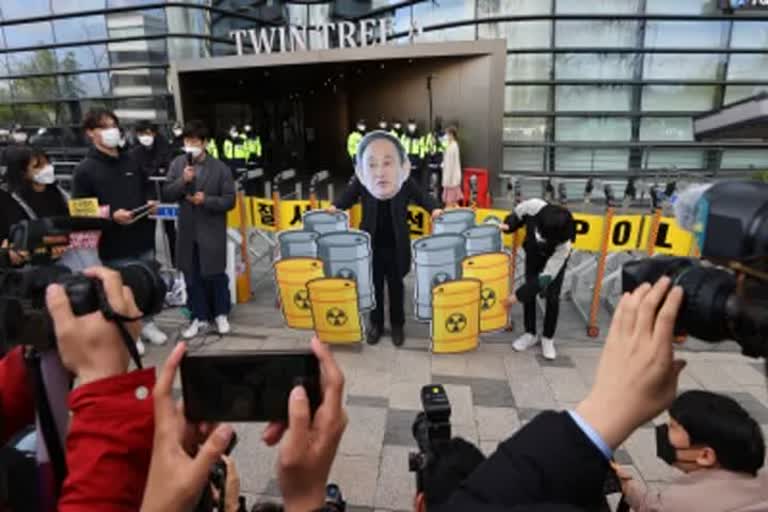Tokyo:The Japanese government on Tuesday announced its decision to start releasing radioactive water accumulated at the damaged Fukushima nuclear plant into the sea after treatment, amid domestic and international opposition.
Prime Minister Yoshihide Suga's cabinet decided on Tuesday morning, which comes a decade after the nation's worst-ever atomic disaster at the Fukushima Daiichi Nuclear Power Station, reports DPA news agency.
The operator said the space for tanks will be running out in 2022, though local officials and some experts say otherwise.
Read:|Nuclear watchdog backs release of contaminated Fukushima water
The plant suffered meltdowns at three of its six reactors after it was hit by a powerful earthquake and ensuing tsunami in March 2011.
Since then, the operator has continued to inject water into the three reactors to keep cooling melted atomic fuel there.
Radiation-contaminated water at the site has been treated through an advanced liquid processing system, but tritium, a radioactive isotope of hydrogen, cannot be removed.
The government and the operator say tritium is not harmful to humans in low concentration.
However, the Tokyo-based Citizens' Commission on Nuclear Energy said in a statement that the government "should strictly avoid releasing tritium into the environment as tritium is still radioactive material".
The group, which includes several experts, rejected the government's plan to release radioactive water into the ocean and instead proposed mortar solidification technology and a land-based storage system, using large tanks.
Read:|Safety of Fukushima waste water focus of sea release debate
The group submitted the proposals to the Industry Ministry and held news conferences repeatedly.
